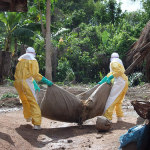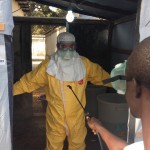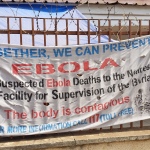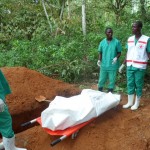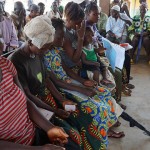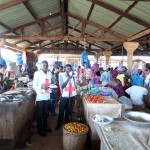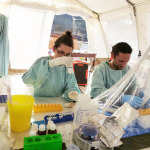Background: A major challenge to outbreak control lies in early detection of viral haemorrhagic fevers (VHFs) in local community contexts during the critical initial stages of an epidemic, when risk of spreading is its highest (“the first mile”). This paper documents how a major Ebola outbreak control effort in central Uganda in 2012 was experienced from the perspective of the community. It asks to what extent the community became a resource for early detection, and identifies problems encountered with community health worker and social mobilization strategies.
Continue reading →
The CLEME (Community Led Ebola Man- agement and Eradication) programme aims at triggering the behavioural change needed by the communities to strengthen community resilience to the outbreak and prevent further resurgence by ensuring real and sustainable improvements through: Providing the communities with the means to conduct their own appraisal and analysis of the Ebola outbreak, their safety regarding the disease and its con- sequence if nothing is done; Instilling a feeling of urgency in engaging in community actions that will prevent the community experiencing infections; Supporting
Continue reading →
A team of researchers from the London School of Hygiene & Tropical Medicine and Innovations for Poverty Action Sierra Leone developed a study evaluating the use of mobile technology in improving the process of tracing contacts of Ebola patients in Sierra Leone. As part of this study, the team, with the help of a developer, designed a customized application using Dimagi’s CommCare that has been implemented in the district of Port Loko. The research team seeks an individual or small group of mHealth experts to
Continue reading →
Ebola Virus Disease (EVD) home deaths occur as the result of infected persons not being detected early and sent to Ebola Treatment Units (ETU) where they can access care and have an improved chance of survival. From a public health standpoint, EVD deaths should not occur at home. Individuals suspected of being infected with EVD should be identified through case investigations or contact tracing efforts and then referred to an ETU, thus decreasing their risk of dying as well as minimising the risk of exposing
Continue reading →
The Ebola outbreak in West Africa differed from others in its unprecedented size and the high proportion of human-to-human transmission occurring in the community. This report presents an analysis of the impact of Community Care Centres (CCCs) on communities in Sierra Leone. Much has been written about the leadership and coordination of the response – or the lack of it. The emphasis of this evaluation is on the views on the development, implementation and relevance of the CCCs from the perspective of the communities next
Continue reading →
The present document is the eighth and final report in a series presenting descriptive results of a survey of responses to Ebola and Ebola control in 26 villages in all three provinces of rural Sierra Leone, fieldwork for which was undertaken in December 2014. The report covers three villages in Gbo chiefdom, in Bo District. Some emphasis is placed on how inconsistencies of Ebola response are perceived at local level, and undermine trust. Ebola responders should not only improve the quality of their messages, but
Continue reading →
This issue of Limn on “Ebola’s Ecologies” examines how the 2014 Ebola outbreak has put the norms, practices, and institutional logics of global health into question, and examines the new assemblages that are being forged in its wake. The contributions focus on various domains of thought and practice that have been implicated in the current outbreak, posing questions such as: What has been learned about the ambitions and the limits of humanitarian medical response? What insights are emerging concerning the contemporary organization of global health
Continue reading →
